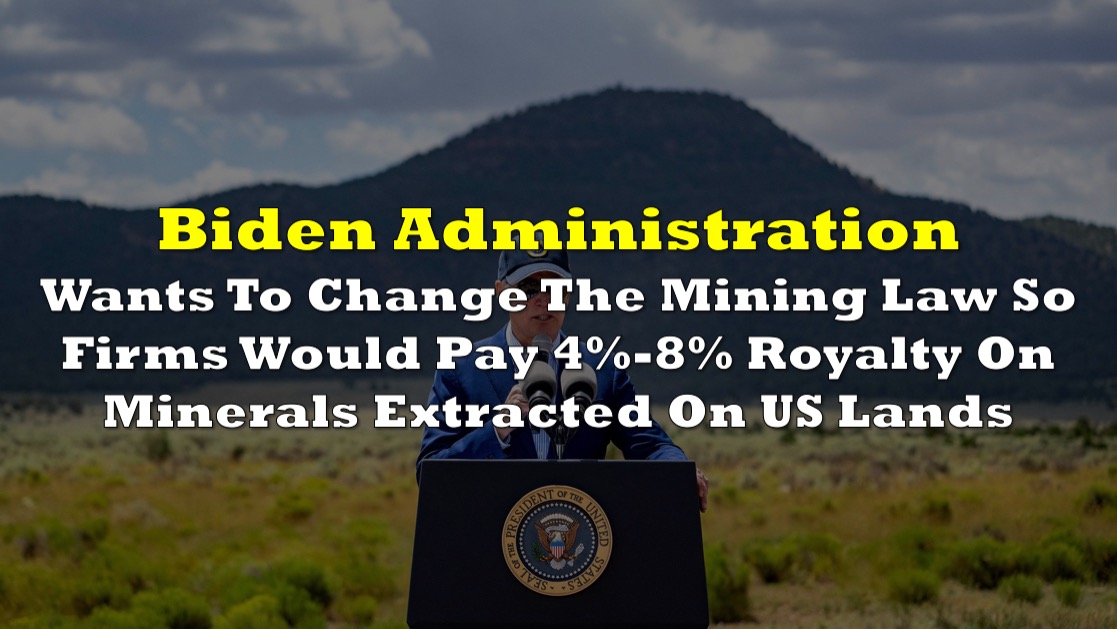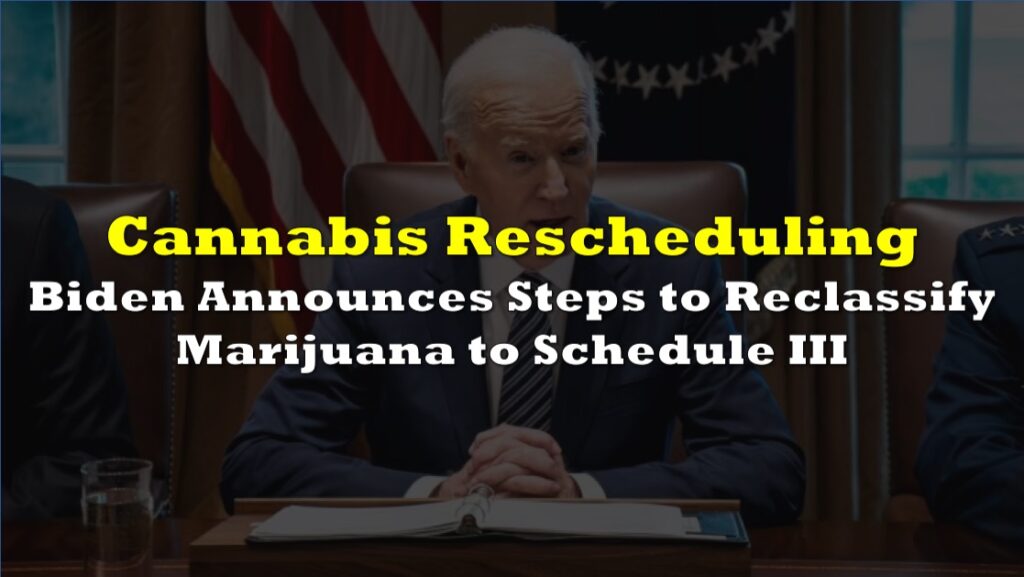The Biden administration is advocating for substantial changes to a century-old mining law, dating back 151 years, that oversees the extraction of copper, gold, and other hardrock minerals on federally-owned lands within the United States. One notable shift includes the introduction of royalties on mineral extraction by companies operating on federal lands, a precedent that has been absent until now.
The Interior Department is spearheading a comprehensive plan that encompasses the establishment of a mine leasing framework and enhanced coordination among various federal agencies during the permitting process. This strategic initiative aligns with the White House’s overarching objective of bolstering domestic mining, particularly for minerals essential to electric vehicles, solar panels, and other components of clean energy.
Under the antiquated 1872 law, the United States has not been collecting royalties on minerals extracted from federal lands—an issue that has long troubled Democratic lawmakers and environmental organizations. The White House’s proposal aims to implement a variable net royalty ranging from 4% to 8% on hardrock minerals obtained from federal lands. However, the plan’s path to enactment hinges on congressional approval, an uncertain prospect given the Republican control of the House and their historical opposition to such fees.
4% to 8% net royalty on hardrock minerals produced on federal lands. HOLY FUCKhttps://t.co/bl0uIh12hN
— The Trevor Hall – Mining Stock Daily (@TrevAHall) September 13, 2023
Unfazed by the political landscape, an interagency working group, led by the Interior Department, highlights the advantages of imposing royalties on approximately 750 hardrock mines primarily located in the western United States. This tally excludes approximately 70 coal mines, whose operators are already subject to federal royalties.
In their report released on Tuesday, the working group asserted, “A royalty would ensure that American taxpayers receive fair compensation for minerals extracted from federal lands.”
Additionally, the proposed fee could fund initiatives aimed at expediting mining permits, addressing the reclamation of abandoned mines, and supporting state and tribal governments that provide essential services to mining-dependent communities.
The United States distinguishes itself from other nations, including Australia, Canada, and Chile, where the collection of mineral royalties is standard practice. Moreover, at least a dozen western states within the U.S. also collect royalties on hardrock mining operations.
“Did not receive any arguments”
The working group acknowledged that the mining industry had voiced concerns about the existing hardrock leasing system employed on specific federal lands but noted, “did not receive any arguments as to why a properly designed leasing system could not be equally successful in the United States.”
Deputy Interior Secretary Tommy Beaudreau, who chaired the working group, described the proposal unveiled on Tuesday as “a modernized approach” that strikes a balance between the requirements of the clean energy economy and the nation’s commitments to tribal nations, taxpayers, the environment, and future generations.
Joelle Gamble, deputy director of the White House National Economic Council, emphasized the significance of securing a stable supply of critical minerals to support vital technologies at the core of President Biden’s “investing-in-America agenda,” including batteries, electric vehicles, wind turbines, and solar panels.
While tribes and environmental groups welcomed the report, they called on President Joe Biden to take more comprehensive measures to safeguard communities, sacred sites, and water resources. The working group was established by the White House last year in line with Biden’s commitment to boost lithium, nickel, and other minerals essential for powering electric vehicles and advancing clean energy.
Allison Henderson, southern Rockies director at the Center for Biological Diversity, an Arizona-based nonprofit, commented, “These modest reforms are a good first step, but they’re not enough to safeguard our water and communities. The Biden administration should use its full authority to update these antiquated mining laws, prevent more mining industry devastation, and preserve a livable planet for future generations.”
Rich Nolan, president and CEO of the National Mining Association, expressed disappointment, contending that the report did little to advance Biden’s stated goals of securing domestic mineral supplies while promoting responsible mining. He argued that the creation of a leasing system, the imposition of a punitive “dirt tax,” and proposed royalties as high as 8% would place additional hurdles in the path of responsible domestic projects, thereby exacerbating the United States’ reliance on imports from countries with questionable labor, safety, and environmental practices.
Because the US government already goes out of its way to kill mining permits and projects, and it's annoying to see yet another piece of legislation eat away at the margins.
— Austin (@CopperCzar) September 13, 2023
You long the winners, who will empirically be winning less with royalties. Why this so hard?
Wyoming Sen. John Barrasso, the leading Republican on the Senate Energy and Natural Resources panel, criticized the proposals as harmful to affordable and reliable energy, cautioning that they might force the U.S. to rely more heavily on critical minerals from countries like China, known for employing forced or child labor, instead of harnessing domestic resources.
Information for this briefing was found via ABC and the sources mentioned. The author has no securities or affiliations related to this organization. Not a recommendation to buy or sell. Always do additional research and consult a professional before purchasing a security. The author holds no licenses.









